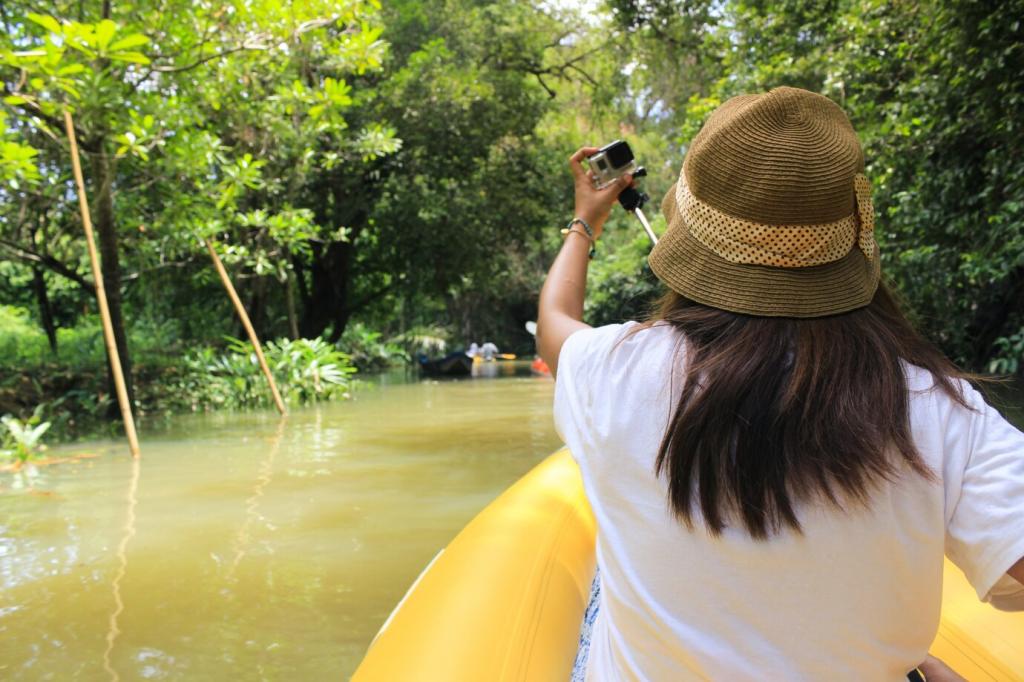
Eco-Friendly Travel Tips for a Greener Journey
Travel offers us a unique way to connect with the world, but it can also have a significant impact on the environment. By making conscious choices before, during, and after our journeys, we can ensure that our adventures tread lightly on the planet. This page provides comprehensive guidance for travelers seeking to reduce their environmental footprint without missing out on memorable experiences. Explore the sections below for advice on transportation, accommodation, packing, activities, and more, and discover how each step can contribute to a more sustainable way of exploring the world.
Choosing Sustainable Transportation
Instead of relying solely on rented vehicles or taxis, try to incorporate public transportation into your travel plans. Trains, buses, and subways typically produce fewer emissions per passenger than cars or planes. Not only does this choice lower your carbon footprint, but it also immerses you in local rhythms and brings authentic cultural experiences. You might discover neighborhoods and routes you’d otherwise miss. As a bonus, public transport is usually friendly on the wallet, letting you allocate funds to other meaningful parts of your trip.


Selecting Certified Eco-Lodges
Certified eco-lodges and sustainable hotels go beyond simple towel-reuse programs. They emphasize renewable energy, water conservation, waste reduction, and community engagement. These accommodations often carry certifications from trusted organizations, reflecting their dedication to protecting the environment and uplifting local communities. By choosing these properties, your stay becomes part of a global movement toward greener hospitality.

Supporting Locally Owned Stays
Privately owned guesthouses, homestays, and boutique hotels usually have a smaller environmental footprint and invest more directly into the neighborhood than large chain hotels. Your spending stays within the community, fueling livelihoods while fostering cultural exchange. Many of these accommodations are deeply committed to preserving heritage buildings and using local materials, offering a distinct sense of place that benefits visitors and residents alike.
Packing Smart and Light
Carrying less means vehicles, planes, and trains use less fuel to transport you and your belongings. Think critically about what you truly need, and leave non-essential items at home. Lighter bags offer increased flexibility and mobility during your trip, making public transit or walking more feasible. Streamlined packing also cuts down on stress and time spent managing luggage—freeing you up to enjoy your destination more fully.
Opt for products made from sustainable materials, such as bamboo toothbrushes, reusable water bottles, and cloth shopping bags. Single-use plastics have a lasting negative impact on the environment, especially in destinations where garbage management is limited. By bringing reusable alternatives, you reduce waste and inspire others to follow your example. Seek out items that are durable, easily cleaned, and suitable for travel to minimize your environmental footprint.
Traveling often involves encountering different standards for recycling and garbage disposal. Pack with this in mind by including reusable containers and familiarizing yourself with local waste management practices. Take responsibility for any waste you generate, carrying it with you until you find appropriate disposal or recycling facilities. This mindful approach demonstrates respect for the places you visit and helps preserve their beauty for future generations.
Avoiding Single-Use Items
Wherever possible, select products and services that avoid single-use packaging. Bring your own cutlery, coffee cup, and reusable shopping bag to reduce dependence on disposable alternatives. Many eateries and markets appreciate travelers who come prepared, and some even reward environmentally conscious customers. Cultivating the habit of rejecting unnecessary packaging contributes to long-term waste reduction efforts in communities you visit.
Practicing Leave No Trace
This philosophy is especially important in natural environments such as parks, beaches, and trails. By removing all your rubbish, respecting local guidelines, and leaving wild places as you found them, you help protect habitats and wildlife. Small actions—like carrying out food wrappers or refusing to disturb plants—collectively ensure that these landscapes remain unspoiled for everyone to enjoy. The Leave No Trace principle is a mindset that benefits both the environment and the traveler.
Supporting Responsible Businesses
Seek out businesses that actively minimize waste through composting, bulk sourcing, or sustainable packaging. Patronizing these establishments encourages more providers to adopt eco-friendly practices, creating positive change in the local tourism industry. Responsible businesses often take pride in their initiatives, and your support gives them further incentive to lead on sustainability in their communities.
Engaging in Low-Impact Activities
Take time to explore parks, reserves, and other natural spaces—but do so with care. Stick to marked trails, avoid picking plants or disturbing animals, and learn about ecosystems from knowledgeable guides. Such practices ensure that the beauty and integrity of these places remain for generations. Responsible interactions help establish positive relationships with local communities reliant on these resources.

Buying Local and Seasonal Products
Seek out markets, eateries, and shops that sell locally grown produce and locally made goods. This reduces the need for long-distance transportation, which is often carbon-intensive, and ensures that your spending contributes directly to local prosperity. Enjoying seasonal products allows you to discover flavors and crafts unique to the region—an authentic benefit to both you and your hosts.
Dining at Sustainable Restaurants
Many restaurants now emphasize farm-to-table sourcing, organic ingredients, and minimal food waste. Choosing such establishments means your meals are likely fresher, healthier, and better for the environment. Ask about where ingredients come from and look for businesses that strive to reduce their energy and water usage. Sustainable dining practices support a greener tourism industry and demonstrate your commitment to responsible travel.
Engaging with Ethical Souvenirs and Crafts
Select souvenirs that are made ethically and sustainably by local artisans, rather than mass-produced plastic trinkets. Handcrafted items not only make for meaningful mementos, but also empower communities by supporting traditional skills and fair wages. Whenever possible, learn the story behind the crafts, and consider how your purchase contributes to cultural preservation.
Carbon offset programs invest in projects that remove greenhouse gases from the atmosphere, such as reforestation, renewable energy, or methane capture initiatives. Travelers can calculate their trip’s emissions and purchase offsets accordingly. Although not a replacement for reducing consumption, offsetting balances out the environmental cost and supports climate-positive projects globally.

